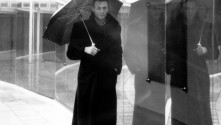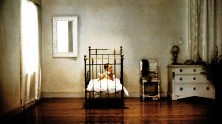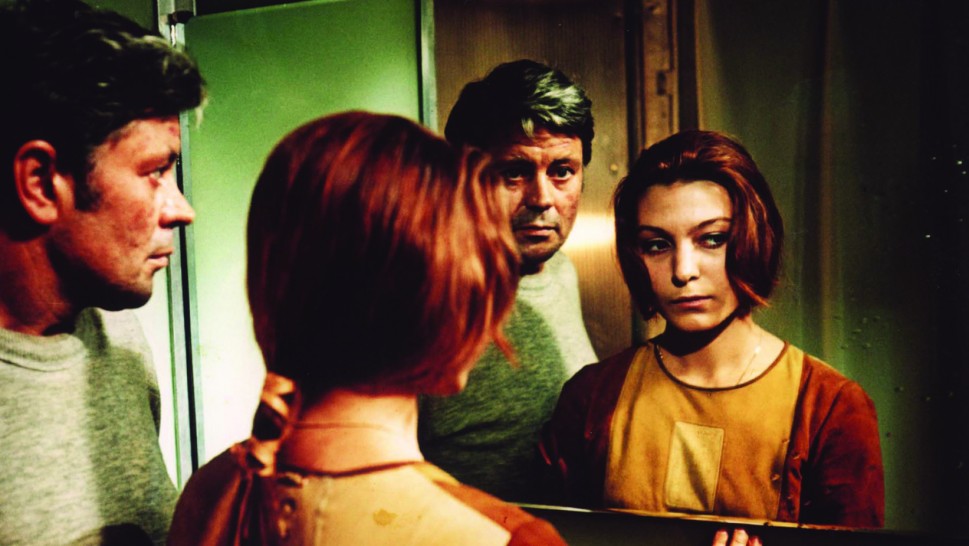
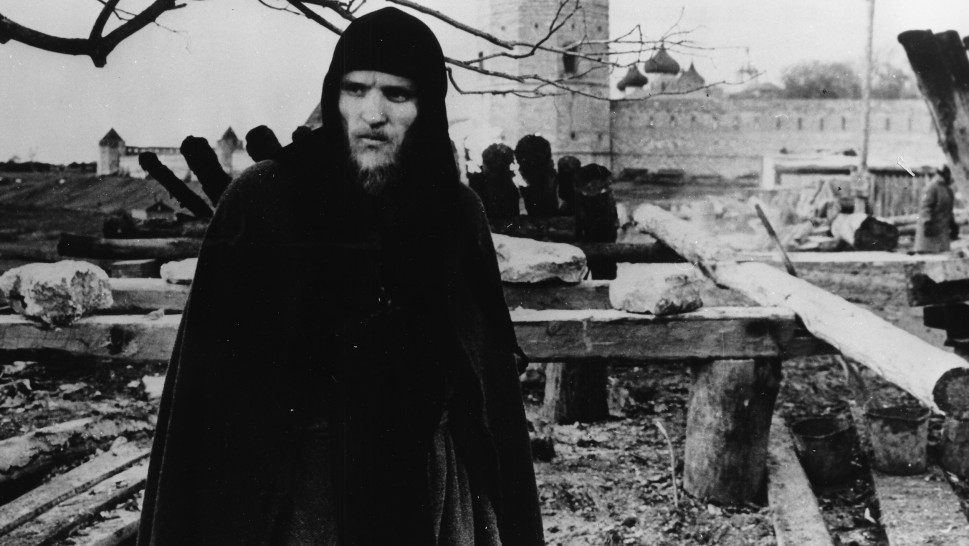
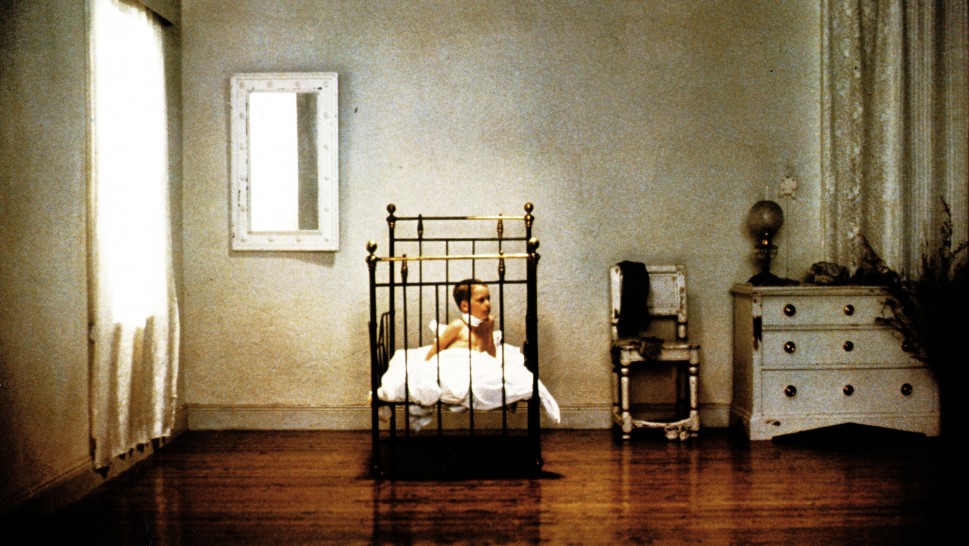
Time Within Time.
The Complete Andrei Tarkovsky
From the very first, the films of Andrei Tarkovsky (1932-1986) stirred something more than appreciation in their admirers: “My discovery of [his] first film was like a miracle,” recalled Ingmar Bergman. “Suddenly, I found myself standing at the door of a room the keys of which had, until then, never been given to me.” This image strikingly anticipates the central Room of Stalker, one of the many catalysts for transfiguration Tarkovsky used to test the threshold of subjective impressions and observable reality. As with the icon painters he so admired, the Russian auteur is important not only for his actual works – seven features, each a monument – but for his ardent conviction in the spiritual nature of art, the moral burden of the artist and the personal nature of revelation. Tarkovsky finally conceived of the creative process of filmmaking as nothing less than a means of reconciling with Creation – “my prayer.”
While his later films would evince the strongest attachments to his father’s poetry and the pastoral dacha of his earliest childhood, Tarkovsky was primarily raised by his mother in Moscow. He enrolled in the VGIK film school in mid-1950s, studying under the famously freethinking director Mikhail Romm. It was an opportune moment for a young Soviet director, as Khrushchev’s Thaw resulted in a new willingness to allow for directors, in Tarkovsky’s own words, “to represent the general through the personal.” The young auteur pressed this advantage with Ivan’s Childhood, a largely interior treatment of the Second World War that immediately placed Tarkovsky in the front ranks of international art cinema. Not for the last time, however, Tarkovsky’s ambition outpaced his relative prestige within the Soviet industry. After watching Andrei Rublev, his years-in-the-making epic of the artist’s transcendence in the midst of abject violence and suffering, the Goskino bureaucrats promptly banned the film, only relenting five years later, nearly a decade after Ivan’s Childhood.
This struggle for creative control proved to be a recurring aspect of Tarkovsky’s career until finally, in the early 1980s, he felt it necessary to relocate to Europe. As a self-styled national poet, Tarkovsky perceived exile as a grave threat to his creative inspiration; and indeed, the search for meaning driving all of his films takes on a more pointed, desperate edge during his late period. Asked about the subject of Nostalghia, a film concerning a Russian poet facing existential crisis in Italy, Tarkovsky replied, “The impossibility of living, the absence of freedom” – a decisive shift in emphasis from his answer to a similar question about Solaris twenty years earlier (“The problem of overcoming, of convictions, of moral transformation on the path of struggle within the limits of one’s own destiny”). Shortly after finishing The Sacrifice, a film in which private crisis folds into global catastrophe, Tarkovsky was diagnosed with lung cancer. It was only as his death neared that the Soviet authorities finally began to show signs of reappraising his work – an irony all too familiar from Rublev’s life story. Certainly, though, by the end of his life Tarkovsky’s artistic significance had long since eclipsed the state’s imprimatur.
In an essay written just after Ivan’s Childhood’s release, Tarkovsky held that “[a] larger portion of the film must be devoted to the slowly passing minutes of anticipation, delays, and pauses, which are far from being ventilation holes in the narrative progression.” More than twenty years later, in his book Sculpting with Time, he offered a variation on this same theme: “I think that what a person normally goes to the cinema for is time: for time lost or spent or not yet had. He goes there for living experience; for cinema, like no other art, widens, enhances and concentrates a person’s experience.” Tarkovsky placed his trust in the idea that an essential experience of cinema would convey an essential experience of life, as both are made of these same “slowly passing minutes.” In each of his films Tarkovsky struggles to find the form that will hold time’s intimacy and mystery. If there is finally something quixotic in the notion of “sculpting with time,” it is, if nothing else, an idea that reflects a strong faith in the audience’s experience. “You are struck every time by the singularity of the events in which you took part,” Tarkovsky reflected. “The artist therefore tries to grasp that principle and make it incarnate, new each time; and each time he hopes, though in vain, to achieve an exhaustive image of the Truth of human existence.” For Tarkovsky, as for all seekers, the only necessary goal is the impossible one. His films live on in the spirit of that search, with all their extraordinary ambitiousness pointing to a finally unfathomable sense of purpose. – Max Goldberg, writer and frequent contributor to cinema scope




